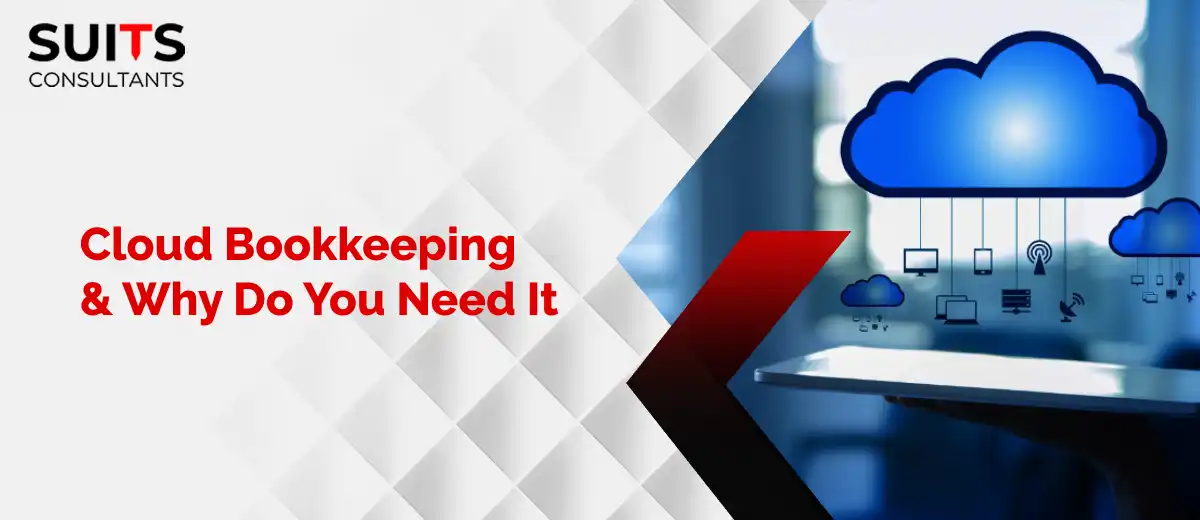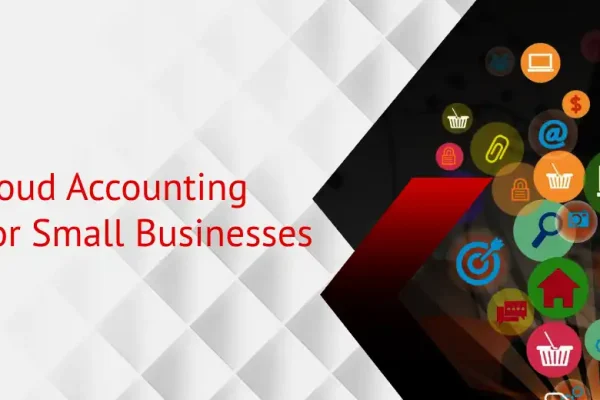Cloud Bookkeeping & Why Do You Need It
Keeping track of finances manually is a hassle—it’s time-consuming, prone to errors, and limits access to important data. I’ve seen businesses struggle with outdated bookkeeping methods, losing time and money on tasks that could be automated. That’s where cloud bookkeeping makes a difference.
In this guide, I’ll walk you through what cloud bookkeeping is, why it’s a smarter choice, and how it can simplify financial management. You’ll also discover its key features, security benefits, and tips for choosing the right software for your business.
What Is Cloud Bookkeeping?
Cloud bookkeeping uses online software to manage financial records, offering real-time access, automation, and secure data storage. Unlike traditional systems, it eliminates manual updates and device limitations. Businesses adopt it to save time, reduce errors, and improve financial management.
Key Features of Cloud Bookkeeping Software
Cloud bookkeeping isn’t just about convenience—it’s packed with features that streamline financial management and enhance security.
- Real-time financial tracking – Automated transaction recording keeps your books updated.
- AI-powered error detection – Prevents discrepancies and reduces manual corrections.
- Cloud-based invoicing & payments – Simplifies transactions and cash flow management.
- Multi-user collaboration – Allows accountants, bookkeepers, and business owners to work together.
- Bank account integration & reconciliation – Syncs transactions for accurate records.
- Payroll & tax management tools – Automates compliance and employee payments.
- Data encryption & backups – Ensures financial data remains secure and accessible.
What are the Benefits of Cloud Bookkeeping
Beyond these features, cloud bookkeeping also brings significant benefits that can transform how businesses manage their finances. Here’s why making the switch is a smart move:
- Cost Savings – Reduces expenses by automating bookkeeping tasks and minimizing errors.
- Time Efficiency – Speeds up processes like invoicing and reconciliation, freeing up valuable time.
- Accessibility & Flexibility – View and manage financial data from anywhere, on any device.
- Data Security & Disaster Recovery – Protects records from hardware failures with encrypted backups.
- Scalability – Adapts to business growth without increasing administrative burden.
- Compliance & Accuracy – Helps maintain tax compliance and reduces financial discrepancies.
Is Cloud Bookkeeping Secure?
Cloud bookkeeping is designed with robust security measures that protect your financial data from unauthorized access and data loss. Here’s how cloud-based solutions keep your information safe:
- Encryption Standards: Uses advanced encryption (AES-256, SSL) to secure data in transit and at rest.
- Multi-Factor Authentication: Adds an extra layer of security by requiring additional verification for account access.
- Automated Backups: Regular backups ensure that your data is preserved and quickly recoverable in case of issues.
These security measures make cloud bookkeeping a safer option compared to traditional storage methods, while best practices—like strong passwords and regular security audits—further enhance protection.
How to Choose the Right Cloud Bookkeeping Software
Not all cloud bookkeeping solutions are the same—choosing the right one depends on your business needs.
Key Factors to Consider:
- Business Size & Needs: Small businesses may need basic invoicing, while larger ones require advanced reporting.
- Integration Capabilities: Ensure compatibility with existing tools like CRM, payroll, or ERP systems.
- Scalability: Pick software that grows with your business without costly upgrades.
Popular Cloud Bookkeeping Tools:
| Software | Best For |
| QuickBooks Online | Small to mid-sized businesses with robust accounting needs. |
| Xero | Businesses requiring strong third-party integrations. |
| FreshBooks | Freelancers and service-based businesses. |
| Wave | Startups and small businesses need a free option with basic accounting features. |
Subscription vs. One-Time Purchase: Most cloud-based solutions use subscription models for continuous updates and support, making them a better long-term investment over one-time software purchases.
How to Transition from Traditional to Cloud Bookkeeping
Switching to cloud bookkeeping is a process that requires planning to avoid disruptions. Here’s a step-by-step approach:
- Assess Current Bookkeeping Practices – Identify inefficiencies and pain points in your existing system.
- Choose the Right Software – Select a cloud bookkeeping solution that meets your business needs.
- Migrate Financial Data Securely – Transfer records carefully, ensuring data accuracy.
- Train Employees & Accountants – Guide to ensure a smooth transition.
- Monitor & Optimize – Regularly review the system’s performance and make improvements as needed.
Common Mistakes to Avoid When Using Cloud Bookkeeping
Even with all its advantages, cloud bookkeeping can be ineffective if not used correctly. Avoid these common mistakes to maximize its benefits:
- Neglecting data security measures – Weak passwords and lack of backups put financial data at risk.
- Not integrating with other financial tools – Missing out on automation and efficiency by keeping systems disconnected.
- Overlooking customization options – Not tailoring the software to industry-specific needs can limit its effectiveness.
- Failing to train employees – Without proper training, teams may struggle to use the software efficiently, leading to errors.
Future of Cloud Bookkeeping & Why You Should Make the Shift Now
- Cloud bookkeeping is becoming the industry standard, with businesses adopting it for better efficiency and automation.
- Real-time data access, AI-driven insights, and seamless integrations are shaping the future of financial management.
- Staying with traditional bookkeeping may limit scalability and slow down business growth.
- As more businesses switch, cloud accounting tools continue to evolve, offering more features and better security.
- Now is the best time to transition to stay competitive and streamline financial processes.
FAQs About Cloud Bookkeeping
What is cloud bookkeeping?
It’s an online system for managing financial records with automation, real-time access, and secure data storage.
How secure is cloud bookkeeping?
It uses encryption, multi-factor authentication, and automated backups to protect financial data.
Can cloud bookkeeping integrate with my tools?
Yes, most software integrates with CRM, payroll, and other accounting tools for seamless workflow.
Is cloud bookkeeping good for small businesses?
Yes, it’s cost-effective, scalable, and simplifies financial management for businesses of all sizes.
How much does cloud bookkeeping cost?
Pricing varies, with subscription-based plans and free options for basic accounting needs.
Conclusion
Cloud bookkeeping streamlines financial management with automation, security, and real-time tracking. It saves time, reduces errors, and improves decision-making—making it a smart upgrade for any business.
Need expert guidance on making the switch? Suits Consultants can help you choose the right cloud bookkeeping solution tailored to your business needs. Get in touch today and take control of your finances with confidence!






